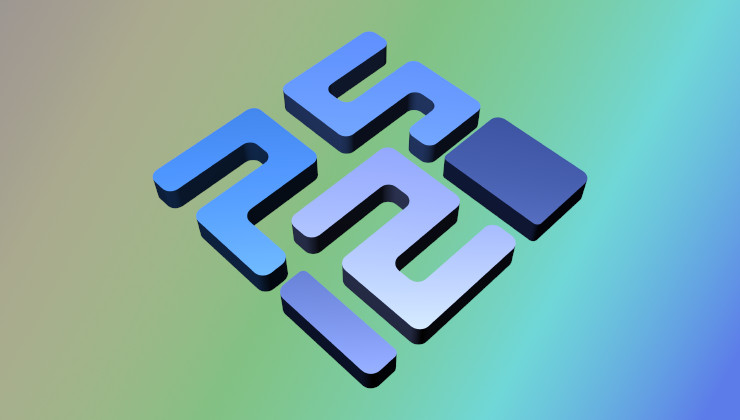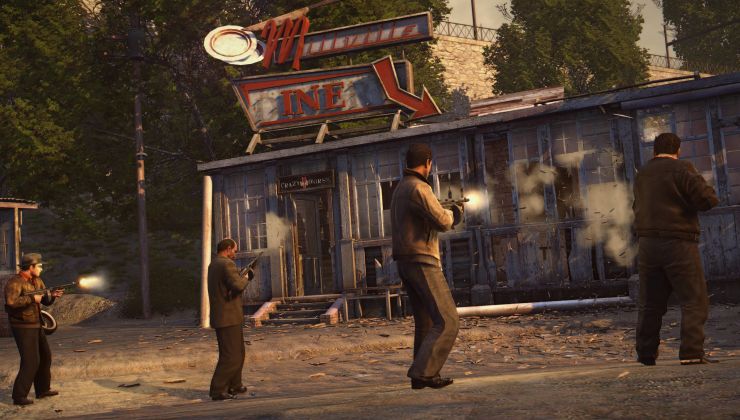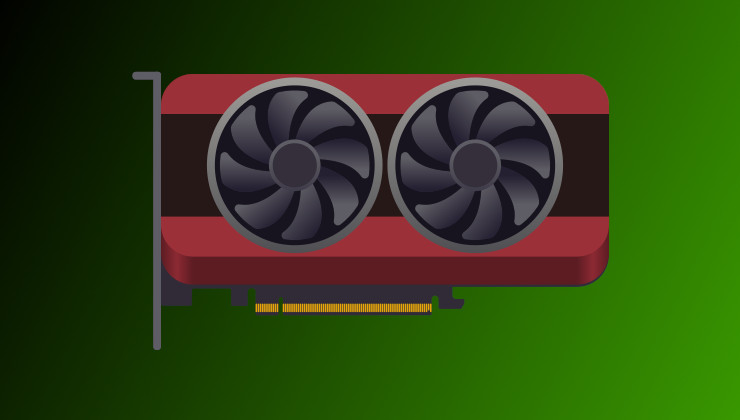Not exactly gaming news but still interesting and it can impact Linux gaming in the future, Valve (and others) has joined the Linux Foundation.
Source

This shouldn't really be a surprise to anyone since Valve are doing SteamOS which is another distrubtion aimed at their Steam Machines. They will be doing this most likely to help improve things like drivers for companies wanting to create their own Steam Machines to properly run SteamOS without issues I imagine.
I can't wait to see if Valve are able to help push hardware manufacturers even more to better support Linux, it can only improve gaming for us.
What do you think? Good news eh!
QuoteJoining the Linux Foundation is one of many ways Valve is investing in the advancement of Linux gaming. Through these efforts, we hope to contribute tools for developers building new experiences on Linux, compel hardware manufacturers to prioritize support for Linux, and ultimately deliver an elegant and open platform for Linux users
Source

YouTube videos require cookies, you must accept their cookies to view. View cookie preferences.
Direct Link
Direct Link
This shouldn't really be a surprise to anyone since Valve are doing SteamOS which is another distrubtion aimed at their Steam Machines. They will be doing this most likely to help improve things like drivers for companies wanting to create their own Steam Machines to properly run SteamOS without issues I imagine.
I can't wait to see if Valve are able to help push hardware manufacturers even more to better support Linux, it can only improve gaming for us.
What do you think? Good news eh!
Some you may have missed, popular articles from the last month:
All posts need to follow our rules. For users logged in: please hit the Report Flag icon on any post that breaks the rules or contains illegal / harmful content. Guest readers can email us for any issues.
Damn good news. Means that valve have even more power to push AMD/Nvidia to make their drivers the equivalent of Windows. Everyone has their reasons why they can't "switch" to Linux but one of the more prominent ones is that Linux isn't getting you as much value for money for your hardware. But Valve can and will change that, just as they changed/invented game digital distribution back in 2003.
0 Likes
Everyone has their reasons why they can't "switch" to Linux but one of the more prominent ones is that Linux isn't getting you as much value for money for your hardware.Uh, what?
I switched to Linux in 2002, and haven't looked back. I had no valid reason to keep Windows around. And in the decade+ since then, I have squeezed FAR more life out of my hardware by running Linux than Windows ever could have given. I only upgraded minimally, typically due to failure (one motherboard, two HDDs) or simply want (more HDD space, or more RAM).
I haven't had an issue with printers or scanners I've bought over the years from Epson, Agfa, or HP. I have a Wacom tablet that I use from time to time. Canon Rebel DSLR camera. Logitech gamepad and Harmony programmable universal remote. All work fine out of the box, plug-n-play, outside of [easily] installing a program to actually use a few devices (like SimpleScan, DarkTable, or Congruity). That's FAR better "value" to me, considering how much of my own time I used to waste trying to get devices working, drivers and bloatware, rebooting, etc. on Windows. All the hardware I've got works just fine, but then again, I don't go around buying random shitty gear that I really don't need from obscure companies nobody's ever heard of.
Sounds to me like people make up excuses and waste their money on low-quality trash, which in turns forces them to stick with likewise for their operating system.
0 Likes
It's common knowledge that AMD's cards are crappy on Linux. I have a friend that tried to switch to Linux, but all his games were running with sub-par framerates and had frequent FPS drops. This has also been verified on comparative benchmarks between Linux and Windows drivers. Luckily Nvidia doesn't have these issues anymore and performance is nearly identical on both systems.Everyone has their reasons why they can't "switch" to Linux but one of the more prominent ones is that Linux isn't getting you as much value for money for your hardware.Uh, what?
I switched to Linux in 2002, and haven't looked back. I had no valid reason to keep Windows around. And in the decade+ since then, I have squeezed FAR more life out of my hardware by running Linux than Windows ever could have given. I only upgraded minimally, typically due to failure (one motherboard, two HDDs) or simply want (more HDD space, or more RAM).
I haven't had an issue with printers or scanners I've bought over the years from Epson, Agfa, or HP. I have a Wacom tablet that I use from time to time. Canon Rebel DSLR camera. Logitech gamepad and Harmony programmable universal remote. All work fine out of the box, plug-n-play, outside of [easily] installing a program to actually use a few devices (like SimpleScan, DarkTable, or Congruity). That's FAR better "value" to me, considering how much of my own time I used to waste trying to get devices working, drivers and bloatware, rebooting, etc. on Windows. All the hardware I've got works just fine, but then again, I don't go around buying random shitty gear that I really don't need from obscure companies nobody's ever heard of.
Sounds to me like people make up excuses and waste their money on low-quality trash, which in turns forces them to stick with likewise for their operating system.
0 Likes
It's common knowledge that AMD's cards are crappy on Linux. I have a friend that tried to switch to Linux, but all his games were running with sub-par framerates and had frequent FPS drops. This has also been verified on comparative benchmarks between Linux and Windows drivers. Luckily Nvidia doesn't have these issues anymore and performance is nearly identical on both systems.Everyone has their reasons why they can't "switch" to Linux but one of the more prominent ones is that Linux isn't getting you as much value for money for your hardware.Uh, what?
I switched to Linux in 2002, and haven't looked back. I had no valid reason to keep Windows around. And in the decade+ since then, I have squeezed FAR more life out of my hardware by running Linux than Windows ever could have given. I only upgraded minimally, typically due to failure (one motherboard, two HDDs) or simply want (more HDD space, or more RAM).
I haven't had an issue with printers or scanners I've bought over the years from Epson, Agfa, or HP. I have a Wacom tablet that I use from time to time. Canon Rebel DSLR camera. Logitech gamepad and Harmony programmable universal remote. All work fine out of the box, plug-n-play, outside of [easily] installing a program to actually use a few devices (like SimpleScan, DarkTable, or Congruity). That's FAR better "value" to me, considering how much of my own time I used to waste trying to get devices working, drivers and bloatware, rebooting, etc. on Windows. All the hardware I've got works just fine, but then again, I don't go around buying random shitty gear that I really don't need from obscure companies nobody's ever heard of.
Sounds to me like people make up excuses and waste their money on low-quality trash, which in turns forces them to stick with likewise for their operating system.
It's common knowledge, alright. The last ATI card I bought was in 2001, they sucked then no matter what OS I used, and there's no surprise they still suck on Linux today.
It's common knowledge, so everyone know this and avoids buying AMD GPUs, right? Or are you telling me people commonly, knowingly, buy random shitty gear from AMD?
I guess I should have included "or well-known companies commonly known to make shitty gear" in my post.
0 Likes
Quote from adolson
Actually you wrong. AMD are improving the Linux driver but very slowly. It is getting there. I guess you have brought overpriced ripoff nvidia card just because you couldn't wait for better driver ;)
It's common knowledge, so everyone know this and avoids buying AMD GPUs, right? Or are you telling me people commonly, knowingly, buy random shitty gear from AMD?
I guess I should have included "or well-known companies commonly known to make shitty gear" in my post.
Actually you wrong. AMD are improving the Linux driver but very slowly. It is getting there. I guess you have brought overpriced ripoff nvidia card just because you couldn't wait for better driver ;)
0 Likes
Are you saying the drivers don't still suck or that nothing has changed since 2001? AMD drivers on whatever OS have always been their weak point. OpenGL was (and probably still is weaker) on Windows, versus NVIDIA. Unfortunately we don't have the chance to use their DX implementation on Linux.
NVIDIA's linux drivers have been pretty good for a long time, from the point of view that they don't get in the way (as much as possible, I can't remember the last time I edited xorg.conf) and just work. They also have pretty good historical support for cards. The latest driver, 330.21, supports all the way back to series 8 cards (2007!), and the older driver 304.xx still gets updates.
Great hardware is wasted with terrible drivers. Why spend less on a more powerful card, if you can't use it? (Take Metro:LL, for example.)
NVIDIA's linux drivers have been pretty good for a long time, from the point of view that they don't get in the way (as much as possible, I can't remember the last time I edited xorg.conf) and just work. They also have pretty good historical support for cards. The latest driver, 330.21, supports all the way back to series 8 cards (2007!), and the older driver 304.xx still gets updates.
Great hardware is wasted with terrible drivers. Why spend less on a more powerful card, if you can't use it? (Take Metro:LL, for example.)
0 Likes
Quote from adolsonI've been using Linux exclusively since 2002. You really think I should have fought with ATI/AMD junk for OVER ELEVEN YEARS? Give your head a shake, seriously.
It's common knowledge, so everyone know this and avoids buying AMD GPUs, right? Or are you telling me people commonly, knowingly, buy random shitty gear from AMD?
I guess I should have included "or well-known companies commonly known to make shitty gear" in my post.
Actually you wrong. AMD are improving the Linux driver but very slowly. It is getting there. I guess you have brought overpriced ripoff nvidia card just because you couldn't wait for better driver ;)
You get what you pay for.
0 Likes
I think that a little of the contentiousness in this thread could have been avoided just by making points a little clearer.
However, it's still generally true that video card driver performance in Linux trails that of Windows.
With NVidia's latest proprietary drivers you will see the best comparative performance (sometimes Linux beating out Windows, though that may be because of the Linux advantage with the other parts of the system). They won't always work with every other part of the system exactly as expected, and have sometimes had stability problems. The issues are generally minor, however, and they give you the best game performance along with perfectly acceptable desktop performance most of the time.
The open source drivers for Nvidia are probably hardly worth mentioning in a discussion on a gaming forum. I respect all of the reverse engineering work that has been done on Nouveau, but the developers have been at a tremendous disadvantage (at least up until very recently).
With Intel video, the Linux performance is good, but not quite as good as the Windows Intel drivers. The Windows and Linux drivers are developed entirely separately at Intel, so who knows what the future may hold.
AMD's proprietary Catalyst drivers are much better than they used to be, but that's not saying much. They are pretty good for a lot of games, but have problems with others. They pretty much stink for anything not involving OpenGL. You get poor performance and tearing on your desktop. You have to set media players to use OpenGL for output and set OpenGL to sync with the monitor in order to avoid tearing when playing videos. This doesn't help you with Flash videos or anything being played directly by your browser. You can try using a compositor outputting your entire desktop to OpenGL to alleviate this issue, but Compton, for instance, doesn't seem to be stable with Catalyst drivers.
AMD's open source drivers have also improved greatly. In fact, I would go as far as saying that the open source drivers are very good ... as long as your card is at least two or three years old. The biggest problem with the AMD open source drivers is how much they lag the hardware. They have, however, continued to improve steadily ever since AMD acquired ATI.
AMD has recently made statements to the effect that we should expect a lot of progress in the performance of their hardware with Linux. The recent flurry of activity with the open source driver has lead some to speculate that this is where the improvement they are referring to will arrive. It's difficult to be sure, though, whether their efforts are going to be especially focused on the open source driver or not. If that is what happens, they might eventually drop the Catalyst for Linux driver altogether, but we still don't know one way or the other.
One other issue that involves all of the open source drivers is that the open source OpenGL stack in Linux has trailed behind the OpenGL spec (I should clarify that the native OpenGL stack in Windows is much more behind the spec, but all the drivers in Windows are proprietary and use their own OpenGL stacks). That means that the newest versions and features of OpenGL are not supported by open source drivers at this time. A lot of recent effort has gone toward remedying this situation, so it is improving steadily. It really seems to me that Valve's efforts, the resurrection of the independent game developer market, and the growth of desktop Linux in general have all helped with this.
...Linux isn't getting you as much value for money for your hardware.This comment was made very specifically about video cards. It's true that Linux gives you more value for your hardware when it comes to CPUs, RAM, hard drives, etc. (just about anything besides video cards, as long as it's compatible hardware). It's even true that some video cards that are quite a bit older get better support in Linux than they do in Windows.
However, it's still generally true that video card driver performance in Linux trails that of Windows.
With NVidia's latest proprietary drivers you will see the best comparative performance (sometimes Linux beating out Windows, though that may be because of the Linux advantage with the other parts of the system). They won't always work with every other part of the system exactly as expected, and have sometimes had stability problems. The issues are generally minor, however, and they give you the best game performance along with perfectly acceptable desktop performance most of the time.
The open source drivers for Nvidia are probably hardly worth mentioning in a discussion on a gaming forum. I respect all of the reverse engineering work that has been done on Nouveau, but the developers have been at a tremendous disadvantage (at least up until very recently).
With Intel video, the Linux performance is good, but not quite as good as the Windows Intel drivers. The Windows and Linux drivers are developed entirely separately at Intel, so who knows what the future may hold.
AMD's proprietary Catalyst drivers are much better than they used to be, but that's not saying much. They are pretty good for a lot of games, but have problems with others. They pretty much stink for anything not involving OpenGL. You get poor performance and tearing on your desktop. You have to set media players to use OpenGL for output and set OpenGL to sync with the monitor in order to avoid tearing when playing videos. This doesn't help you with Flash videos or anything being played directly by your browser. You can try using a compositor outputting your entire desktop to OpenGL to alleviate this issue, but Compton, for instance, doesn't seem to be stable with Catalyst drivers.
AMD's open source drivers have also improved greatly. In fact, I would go as far as saying that the open source drivers are very good ... as long as your card is at least two or three years old. The biggest problem with the AMD open source drivers is how much they lag the hardware. They have, however, continued to improve steadily ever since AMD acquired ATI.
AMD has recently made statements to the effect that we should expect a lot of progress in the performance of their hardware with Linux. The recent flurry of activity with the open source driver has lead some to speculate that this is where the improvement they are referring to will arrive. It's difficult to be sure, though, whether their efforts are going to be especially focused on the open source driver or not. If that is what happens, they might eventually drop the Catalyst for Linux driver altogether, but we still don't know one way or the other.
One other issue that involves all of the open source drivers is that the open source OpenGL stack in Linux has trailed behind the OpenGL spec (I should clarify that the native OpenGL stack in Windows is much more behind the spec, but all the drivers in Windows are proprietary and use their own OpenGL stacks). That means that the newest versions and features of OpenGL are not supported by open source drivers at this time. A lot of recent effort has gone toward remedying this situation, so it is improving steadily. It really seems to me that Valve's efforts, the resurrection of the independent game developer market, and the growth of desktop Linux in general have all helped with this.
0 Likes
I'm a little dubious about the stories of Valve pushing for better drivers. AMD started ramping up Linux support quite a bit before Steam came to Linux, and they have helped open source drivers along quite a bit on their own. nVidia, of course, have had their blobs around for quite some time. Plus, on both the nVidia and AMD side, the proprietary drivers share most of the OpenGL codebase between Windows and Linux; typically improvements on one OS benefit the other when it comes to OpenGL.
Indeed, graphics hardware has been improving by leaps and bounds on Linux for years, long before Valve started making overtures.
Just to throw my own molotov into the flames, I have been using radeon cards on Linux since I made the switch full time to Fedora in 2007, and my old Radeon 9200 was one of the best graphics cards I have ever used. Even then it worked out of the box with free in-kernel drivers that required no fuss to use and setup, something that I had come to expect from Linux. Unfortunately that was one of the last cards out of ATI that had free drivers supported by the company, something that used to be the norm before the likes of Matrox and 3DFX went down the toilet and Nvidia started pushing everyone to use non-native blob drivers that did not work with the Linux graphics stack and instead crudely welded their own proprietary implementations on top of a free well integrated system.
Thankfully AMD bought out ATI later that year, and with the help of Linux vendors such as Novell and Red Hat started their own open source initiative. From there with the help of Intel they helped to further the development of the actual Linux graphics stack that had long since been suffering from atrophy due to a lack of proper commercial support. During the past five years the situation has improved dramatically, and I can now love my Radeon HD 4670 just as much as I did my Radeon 9200. There is still more work that needs to be done, and it is still getting done at an amazingly fast rate, but to credit Nvidia as being a beacon on Linux is to ignore the fact that through their actions they actually helped cripple the Linux graphics stack for almost half a decade.
One last note - when it comes to general hardware support, I have an old HP Scanjet 2300c that we left for dead because the official HP drivers would cripple its use under Windows. I have been using it successfully under Linux for the past few years however because the reversed engineered Linux drivers do not appear to have this issue. Just throwing that out there.
0 Likes
Just to throw my own molotov into the flames, I have been using radeon cards on Linux since I made the switch full time to Fedora in 2007, and my old Radeon 9200 was one of the best graphics cards I have ever used. Even then it worked out of the box with free in-kernel drivers that required no fuss to use and setup, something that I had come to expect from Linux. Unfortunately that was one of the last cards out of ATI that had free drivers supported by the company, something that used to be the norm before the likes of Matrox and 3DFX went down the toilet and Nvidia started pushing everyone to use non-native blob drivers that did not work with the Linux graphics stack and instead crudely welded their own proprietary implementations on top of a free well integrated system.
Thankfully AMD bought out ATI later that year, and with the help of Linux vendors such as Novell and Red Hat started their own open source initiative. From there with the help of Intel they helped to further the development of the actual Linux graphics stack that had long since been suffering from atrophy due to a lack of proper commercial support. During the past five years the situation has improved dramatically, and I can now love my Radeon HD 4670 just as much as I did my Radeon 9200. There is still more work that needs to be done, and it is still getting done at an amazingly fast rate, but to credit Nvidia as being a beacon on Linux is to ignore the fact that through their actions they actually helped cripple the Linux graphics stack for almost half a decade.
I actually have some similar experiences.
I had a laptop with a Radeon from that era (I'm not sure of the exact model), and it always worked great with the open source drivers. In fact, I had that laptop for a while, then bought a new one (which happened to have an NVidia GPU) which worked OK for a little over a year, then I had to send it back for motherboard replacement under a recall. After this it worked for a little over another year, at which point the motherboard promptly went again (great recall). So I went back to the old laptop which still worked great with Linux and Windows (well, as great as anything worked with Windows). I was saddened when the motherboard on that laptop finally gave up the ghost. I think it was about six years old by that time, and had been used a tremendous amount (I think I may have logged more time on that laptop than any other laptop I've had). (Incidentally, I recently acquired a somewhat old laptop with a broken screen, and I resurrected the 1680x1050 display from that laptop to replace it with since the broken screen was also 15.4 inch. It has a Mobility Radeon 2600, which works well with the latest open source drivers.)
About four years ago I bought a laptop with an AMD 4850 GPU. It didn't work very well for games with the open source drivers when I got it, so I ran Catalyst. I had to put up with the quirks and workarounds for full motion video while I used that. Not too long ago, however, I decided to update from Ubuntu Studio 12.04 to 13.10 and go back to the open source drivers. With all the recent work on those drivers the laptop now works much better generally than it ever worked with the Catalyst drivers, and games still work reasonably well. I've been contemplating getting a laptop that is a bit lighter and with an IPS display (I now have an IPS monitor for my desktop, and I'm spoiled). However, I hate to give up on my old laptop while it's working so well, even if it is heavy and the battery only lasts two or three hours.
0 Likes








 How to set, change and reset your SteamOS / Steam Deck desktop sudo password
How to set, change and reset your SteamOS / Steam Deck desktop sudo password How to set up Decky Loader on Steam Deck / SteamOS for easy plugins
How to set up Decky Loader on Steam Deck / SteamOS for easy plugins
See more from me